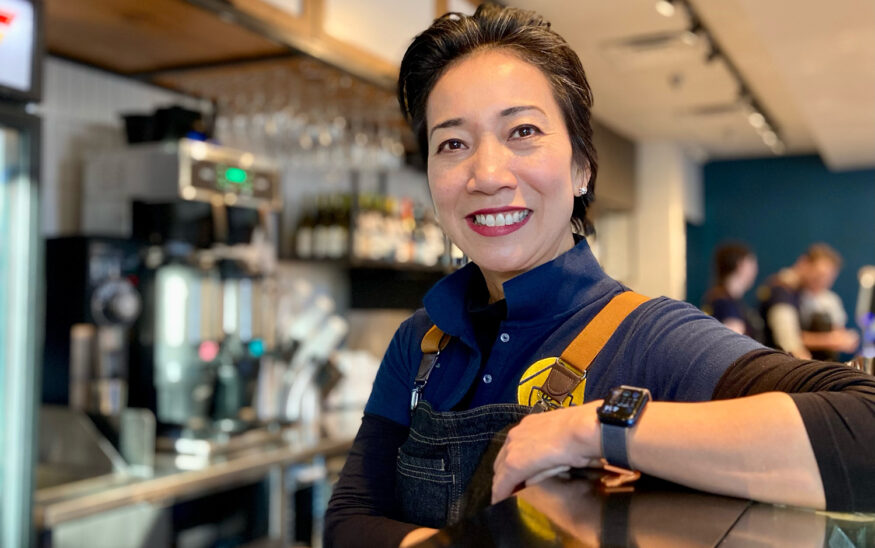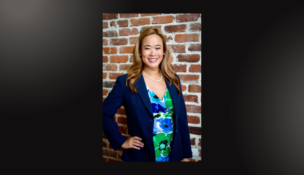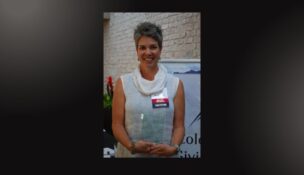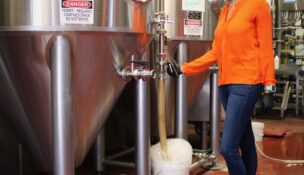Good Company: Mary Nguyen and the Olive & Finch Collective
Nguyen’s background in business comes in handy as she expands her culinary reach.
Jamie Siebrase //October 18, 2023//


Good Company: Mary Nguyen and the Olive & Finch Collective
Nguyen’s background in business comes in handy as she expands her culinary reach.
Jamie Siebrase //October 18, 2023//
Discover the journey of Mary Nguyen, the Executive Chef and Owner of Olive & Finch, as she shares her path from finance to the culinary world. Get insights into her experiences, challenges, and the evolution of Denver’s dining scene in this exclusive interview.
Hometown: Denver
What she’s reading: Mary’s reading two books right now — “Meditations” by Marcus Aurelius, which dives into Aurelius’ principles in “a modern but still profound way,” Nguyen says, and “The 5 Love Languages of Children: The Secret to Loving Children Effectively.” “I try to read as much as I can to learn how to be a better parent,” she says
Mary Nguyen
Executive Chef and Owner of Olive & Finch, Little Finch and Finch on the Fly
Denver, CO
ColoradoBiz: You’re a difficult person to track down, Mary.
Mary Nguyen: That’s not always the case, but I’ve been traveling this summer. We’re in France for five weeks, then Switzerland.
CB: Is this business or pleasure?
MN: It always has something to do with food. We’re celebrating my husband’s 50th. He’s European, and his dad lives in France, so we wanted to have our girls come out with us, but at the same time I’m doing market research on my end, looking at things I can bring to the Denver restaurant space.
CB: That’s exciting news for any locals familiar with your restaurant concepts, Olive & Finch and Little Finch. But before we dive into your brand, tell us a little more about how you got into the industry.
MN: I’m the daughter of immigrants. My parents came here at the fall of Saigon, and they came to Denver because that’s where our sponsors were. It’s been a long time, but back then coming to the U.S. was really different when you came from Vietnam. American families could sponsor Vietnamese families to help them assimilate.
CB: That was further back than expected, but now you’ve piqued our interest. What was it like being raised in Denver by first-generation immigrants?
MN: It helped me stand out in a world of conformity and emphasized the importance of family, connectivity and hard work. My parents taught me to deeply appreciate all the opportunities that I’ve been given. And they instilled in me a work ethic to set goals and then strive to achieve them through perseverance, patience — and maybe a little luck, too.
CB: So, you’re one of those rare Colorado natives?
MN: That’s right! I was born and raised in Colorado. I went to school at George Washington High School and CU-Boulder.
CB: Does CU Boulder have its own culinary program?
MN: Actually, I’m not trained as a chef. I didn’t go to culinary school. My degree is in economics and international affairs. After college I went straight into investment banking, doing public finance, trading commodities. But I always really loved cooking. One day I decided I was more interested in cooking and recipe development. I left finance and got as many kitchen jobs as I possibly could. I literally had no experience, and I needed to learn as much as possible.
CB: What kind of jobs are we talking about?
MN: I applied at Starbucks because I knew I wanted to open a café, and they had a great training program. I woke up every morning at 3 a.m. to take the morning shift. Then I’d head over to Hapa Sushi Grill — this was when they first opened in Cherry Creek, in the early 2000s — to work the lunch shift. I really loved sushi and was offered a job as an apprentice sushi chef.
CB: That sounds like an exhausting day.
MN: I’m not finished. I also worked at a restaurant called the Beehive in the evenings. I remember eating in their open kitchen, with this beautiful, red brick, having fruit and nuts in my salads. That was almost revolutionary back then.
CB: When’d you find the time to go back to culinary school?
MN: I didn’t. I’m 100 percent self-taught.
CB: But your restaurants are so polished and well-executed. How’s that possible?
MN: I didn’t even start cooking until I was in college. My parents cooked when I was younger. My mom is an amazing Vietnamese cook, and she’d experiment with American food in her kitchen. I think I was always in an environment where food was important. As an adult, I found myself having dinner parties, being in the kitchen, loving it. When I decided to quit my finance job, I was young. I thought it would be easy. I don’t know if I’d do that now, but at 25 I was living in the moment.
CB: OK, don’t take this the wrong way, but how’d you land any restaurant jobs with absolutely no experience?
MN: That’s a fair question. I remember seeing an ad in Westword: There was an opening at the Beehive for a sous chef, and I showed up in my three-piece suit, with no idea what a sous chef was. I wanted to cook and was willing to do anything. The owner turned me down, obviously, but she also realized I wanted to learn. A few months later, I got a call. They had a position in the pantry. In the back of my mind, I thought, “Wow, she’s offering me an opportunity to put groceries away.” I had no idea what a pantry cook was. Now that I understand the dynamics and hierarchy of a kitchen, I can only imagine what the owner thought of me.
CB: It’s the early 2000s, and you’re working three jobs. How long did this grind continue?
MN: I worked all three jobs for over a year, then I worked at Hapa a while longer, moving up the ranks to become a sushi chef.
CB: That was — what? — nearly 20 years ago? How has the Denver dining scene changed?
MN: I think back to 2005, when I opened my first restaurant, Parallel Seventeen, and there just weren’t a lot of options in Denver. It was either very fine dining that you paid an arm and leg for, or your neighborhood pizza or burger place, or a Chinese restaurant. I’d travel to Europe with my husband and see all these great cafés, places where you could go in for something quick, and I wanted to deliver a similar experience in Denver, where people had great food without the commitment in time, diet and money. P17 stood out as a nice restaurant that morphed into a bar at night, doing Vietnamese and French cuisine. In 2013, when I opened the first Olive & Finch location, I remember talking to my PR team, and nobody understood what I was trying to do. The idea was for counter service, but we’d roast our own chickens, bake fresh bread daily. Ten years later, there were lots of places just like it, offering affordable, chef-made food in a casual setting. But at the time we opened? It was really different.
CB: You opened the second Olive & Finch location in Cherry Creek in 2017, and both spots are still very popular, even after the pandemic. Is it because you’re serving real food?
MN: That’s one reason. Everything is made from scratch, and you can taste it. But also, our restaurants are easy and convenient.
CB: Is it the same with your newest concepts, Little Finch and Finch on the Fly?
MN: Before Little Finch, we opened a wholesale operation in 2019, selling pastries and grab-and-go items to other restaurants and businesses in the area. Then Little Finch opened in February of 2023 as a very casual all-day café focused on beverages and grab-and-go items. Finch on the Fly is a healthy, quick option at Denver International Airport.
CB: You’ve added a lot to the Olive & Finch brand in just a few years. Have you thought about tapping into the home-cook market, too, which has been on the rise since the pandemic?
MN: No, but years ago, when I had a restaurant called Street Kitchen, I’d close during weekend days and teach cooking classes, turning the dining room into a little cooking school. If we did that today, we’d sell out.
CB: It’s hard to talk about the restaurant industry without bringing up COVID-19. How’d you make it through, and were there any takeaways that surprised you?
MN: It was just as hard for us as it was for everybody else. Our pivot wasn’t as challenging, though, because we had already had a strong to-go business. We were very lucky in that regard. Our business is just so fickle, and we learned that it’s going to be important for us to remain dynamic and flexible if we want to stand the test of time.
CB: Did the pandemic change consumer dining trends?
MN: People are so much more curious and educated about food now, and I think the typical dining consumer is more discerning. They know what they want, and they don’t want to be disappointed.
CB: What does that observation mean for you as a restaurant owner? And has inflation impacted the acumen of dining consumers?
MN: The problem is that our cost of goods has gone up, but the consumer mentality hasn’t shifted. While our labor is higher, and our product costs more, we’re required to stay within a certain price point. It was always important to me to make great food accessible, and that’s still the case, but the margins have narrowed, more so for us because we’re committed to affordability. Plus, we provide benefits to our team, and we pay more than at a typical restaurant.
CB: What’s the message for other Denver-area chefs? Should they quit their day job if opening a restaurant is their dream?
MN: I think if it is your passion — absolutely — you have to go for it. But for those who think opening their own restaurant is a dream, first go stage with another restaurant owner. Once you open a business, everything changes. I don’t do as much cooking anymore because I’m involved in day-to-day aspects of business. That said, I get so much joy seeing a full dining room, seeing staff learn and grow in their careers, just like I did.
Jamie Siebrase is a freelance writer based in Colorado.

























